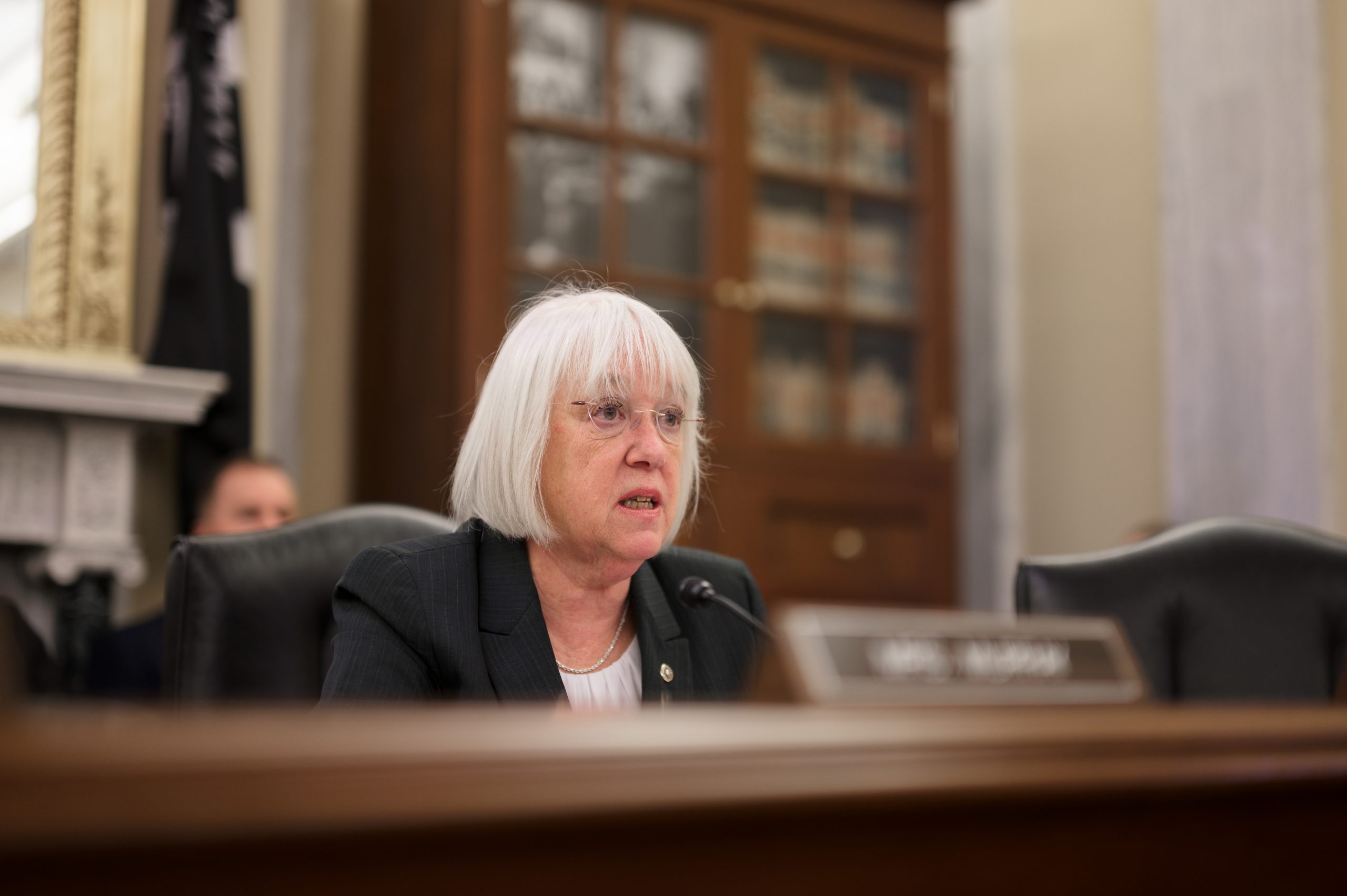***WATCH: Senator Murray’s questioning of Secretary Becerra ***
Washington, D.C. — Today—at a Senate Appropriations Labor, Health and Human Services, Education, and Related Agencies (LHHS) subcommittee hearing on the fiscal year 2025 budget request for the Department of Health and Human Services—U.S. Senator Patty Murray (D-WA), Chair of the Senate Appropriations Committee, discussed recent progress made to help families get child care and the significant investments still needed and underscored the importance of delivering the resources needed to address the opioid crisis, mental health crisis, and so many other critical issues. She also emphasized the growing threat from Republican lawmakers and elected officials to women’s reproductive freedom and discussed the work ahead to support women’s health in our nation’s spending bills. Her opening comments are as follows:
“HHS really is on the frontlines of some of the most challenging issues that our families are facing: opioids, mental health, child care, so much more.
“It is crucial that we maintain strong investments in lifesaving biomedical research, building a strong healthcare workforce and public health system, getting families affordable care close to home, and a lot more.
“Not to mention the constant attacks on reproductive care.
“Women in 21 states are now living under abortion bans—and Arizona is under a ban that dates back to before women even had the right to vote!
“Despite strong support for abortion access around the country, anti-abortion extremists are continuing to attack not only abortion care, but IVF and birth control.
“Everyone, I believe, deserves the freedom to control their own bodies, their own lives, and their own future—free from interference from politicians.
“Which is why I strongly support President Biden’s decision to once again remove Hyde from this year’s budget.
“I look forward to continuing to work with you to protect reproductive health care every way we can in all 50 states.
“And I’m glad to have this opportunity today to talk about how we can provide the resources necessary to meet all the health care challenges before us and support families in my state and across the country.”
Senator Murray reiterated the need to build on the recent progress made in this year’s funding bills and strengthen our investments in tackling the child care crisis, stating: “Programs like Child Care and Development Block Grant and Head Start are a lifeline for working parents who need affordable, high-quality child care and early learning opportunities for their kids. They are an investment not just for our families—but in our workforce and in our economy. So I’m really glad that Senator Baldwin and I were able to send an increase of one billion dollars to the President’s desk to invest in child care and early learning for FY24. Since 2015, I, and many others, have increased funding for these programs by more than 250 percent. But this is, as you know, just a drop in the bucket when looking at the child care crisis that exists in this country. We need to protect and strengthen the investments we’ve made to make sure families can find and afford child care—however possible. That means more annual funding, extending stabilization dollars, and hopefully passing my Child Care for Working Families Act. Can you tell us today about the current state of the child care sector and why investments in programs like CCDBG are critical now more than ever?”
Secretary Becerra replied, in part: “The cost of child care is essentially tuition at a major university. It makes it very difficult for parents, especially parents who have more than one child to really sustain that.” He went on to say that the President’s proposal has the potential to help approximately 16 million families, making “it possible for some families to qualify to have childcare for ten dollars a day, which would ultimately save them each, those families, about $7,200 in a year in the cost of their childcare when you total it up.”
Noting that this week is Black Maternal Health Week, Senator Murray also asked Secretary Becerra about the steps HHS is taking to address high rates of maternal mortality in Black, Hispanic, and Indigenous communities: “It is clear our systems are failing mothers, especially Black, Hispanic, and Native mothers who experience the highest rate of maternal mortality. And extreme state abortion bans passed since the Dobbs decision, have further eroded the access to maternal health because we don’t have as many providers for maternal healthcare across our country… Can you talk to us about what HHS is doing now to address this issue and about the additional investments in maternal health that you’re actually proposing for next year?”
Secretary Becerra noted that: “Because of the efforts of you and others, we have been able to continue to increase the funding in maternal health…We’re trying to do what we can upfront before the delivery so the woman gets good care before delivery, gets good care during delivery, and good care after delivery.”
Finally, Murray asked what the Department is doing to prevent youth homelessness in partnership with local governments across the country—highlighting the new funding she championed in the fiscal year 2024 appropriations bill for a demonstration program based on her draft legislation that will provide grants to state, local, and Tribal governments and local organizations to help prevent youth homelessness.
###


